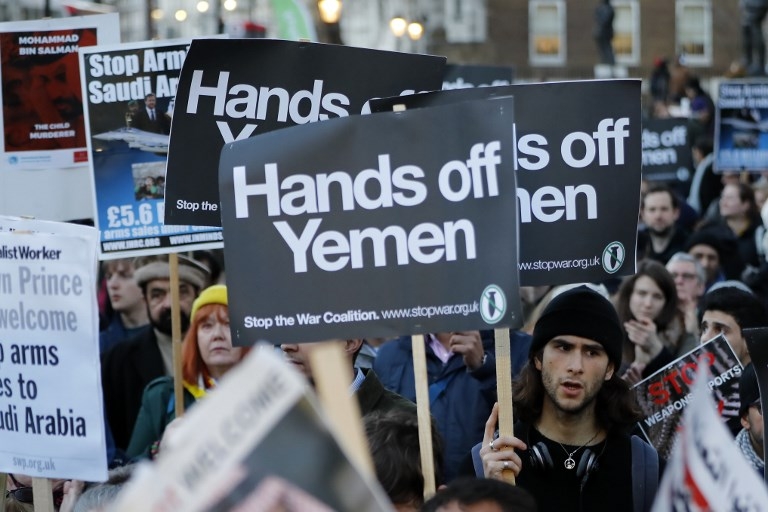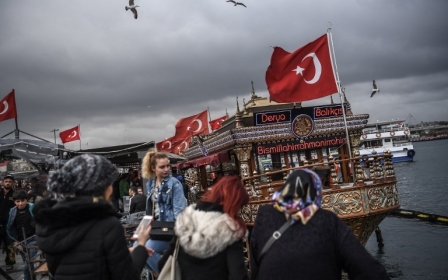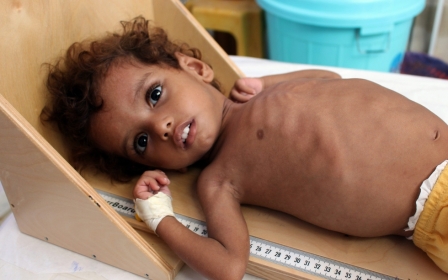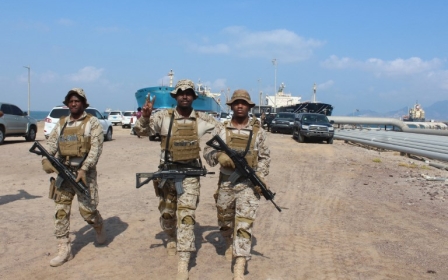Norway suspends future arms exports to Saudi Arabia

Norway has suspended new licenses for arms exports to Saudi Arabia, becoming the second country after Germany to do so amid weeks of pressure on Riyadh over the killing of Jamal Khashoggi and the war in Yemen.
A spokesman for the Norwegian foreign affairs ministry would not say on Friday whether the decision was made because of Khashoggi's murder in the Saudi consulate in Istanbul on 2 October.
"We have decided that in the present situation we will not give new licenses for the export of defence material or multipurpose goods for military use to Saudi Arabia," Foreign Minister Ine Eriksen Soereide said in a statement.
The decision comes a week after Soereide summoned the Saudi ambassador to Oslo to protest Khashoggi's assassination.
It was taken after "a broad assessment of recent developments in Saudi Arabia and the unclear situation in Yemen", the ministry said.
The move also comes about three weeks after Germany said it would suspend future arms sales to the Saudi government over the killing of Khashoggi, a Saudi critic who was living in self-imposed exile in the United States.
After weeks of altering their account of what happened - from saying Khashoggi left the consulate shortly after he arrived, to admitting he died in the building, to saying his murder was premeditated - Saudi Arabia remains under pressure to hold the journalist's killers accountable.
The Saudis have arrested 18 men in relation to the killing, but critics say the country has sought to shield its powerful crown prince, Mohammed bin Salman, from any responsibility.
Turkish President Recep Tayyip Erdogan said last week that the order to kill Khashoggi came from "the highest levels" of the Saudi government.
Countries under pressure to act
On 22 October, German Chancellor Angela Merkel said Germany would halt weapons exports to the kingdom until Khashoggi’s killing - which she called a “monstrosity” - was properly investigated.
"Regarding the question of how to deal with permits already granted, or goods that have not yet been delivered, there are intensive discussions in the government on this at the moment, and we will have to examine this very carefully," a German government spokesman, Steffen Seibert, said at the time.
Countries around the world have been under increased pressure to suspend existing and future weapons deals with Saudi Arabia over the Khashoggi case, as well as in relation to Riyadh's role in the devastating war in Yemen.
A Saudi-led coalition launched a massive military campaign in the country in 2015 to root out Houthi rebels who had taken the Yemeni capital, Sanaa, and ousted then-president Abd Rabbuh Mansour Hadi.
The war has plunged Yemen into an increasingly dire humanitarian situation and the threat of famine is widespread. As many as 56,000 people have been killed as a direct result of armed violence, according to a recent estimate.
Despite this, and amid widespread calls from citizens and human rights groups, few Western countries have actually suspended arms agreements with the Saudi government.
France, the UK and Spain have signalled they will keep selling weapons to Riyadh, saying they intend to wait until the facts of the Khashoggi case are clear.
Canada's Justin Trudeau said he would consider freezing arms export licenses to Saudi Arabia, but that suspending an already approved $12bn deal with Riyadh would cost Canadian taxpayers $1bn.
A bill to halt future US arms sales to the Saudis was introduced in Congress late last month, and several US politicians have demanded concrete answers over Khashoggi's killing.
Still, while US President Donald Trump has said he's unsatisfied by Saudi explanations for the killing, he has also repeatedly said he doesn't intend to suspend a $110bn deal to sell US weapons to Riyadh.
New MEE newsletter: Jerusalem Dispatch
Sign up to get the latest insights and analysis on Israel-Palestine, alongside Turkey Unpacked and other MEE newsletters
Middle East Eye delivers independent and unrivalled coverage and analysis of the Middle East, North Africa and beyond. To learn more about republishing this content and the associated fees, please fill out this form. More about MEE can be found here.




